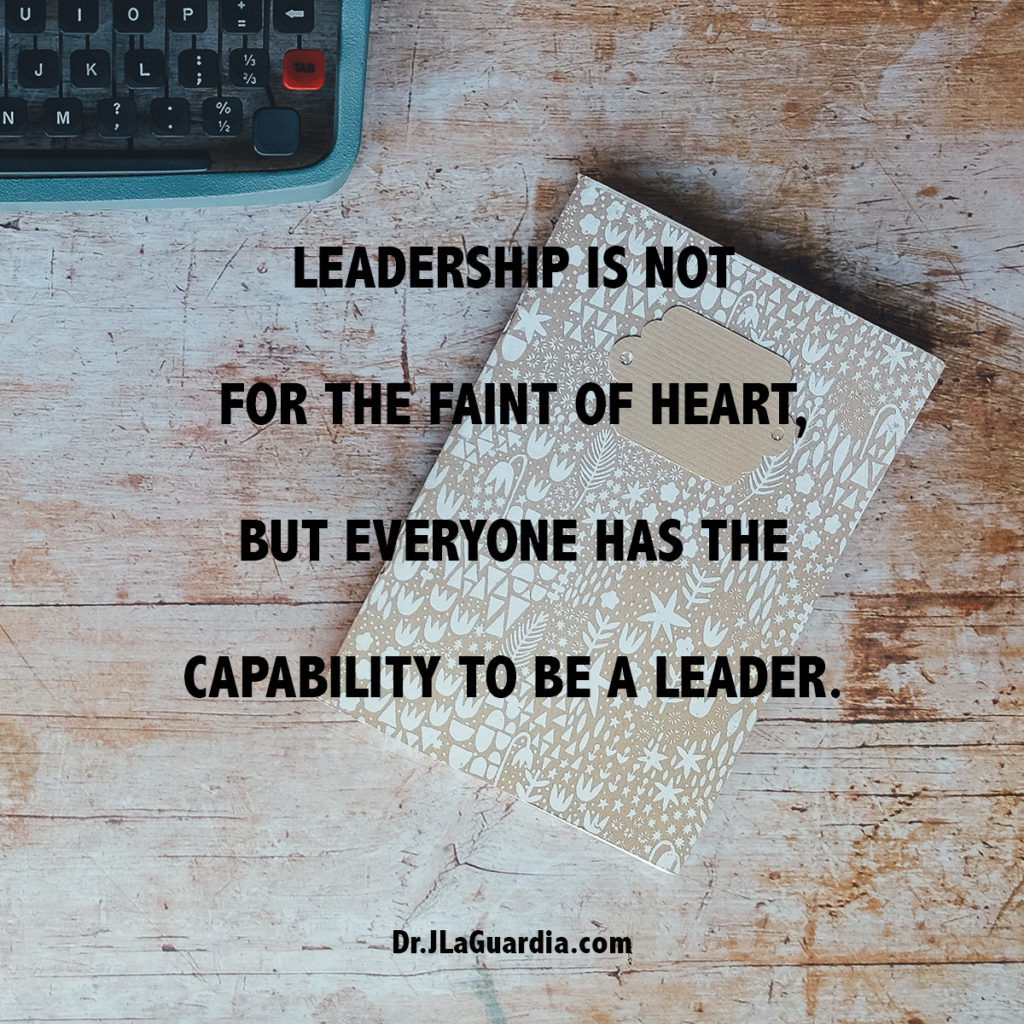
Do you have what it takes to be a leader? To overcome great odds, to be calm when the world around you is falling apart and instill confidence in others that you’re the right person to lead?
Leadership is not for the faint of heart, but everyone has the capability to be a leader. Leadership is not inherent. Leadership is learned skills that can be improved upon over time. You look at any successful company or organization and I can guarantee you they have strong leadership. Leadership is responsible for the culture of a company.
Leadership and culture go together like peanut butter and jelly. A lack of strong leadership will ALWAYS result in a weak or toxic culture.
Business icon Peter Drucker once said, “Culture eats strategy for breakfast.” I challenge you to Google culture; you will see thousands of articles that confirm Druckers’ statement.
Whether you are a business owner or an employee we are all impacted by our work culture, good or bad. You can thank the leadership.
All success in business is leadership driven. If leadership is not committed to creating the right work environment you have no shot. There have been many articles written about what successful leadership looks like, but for this blog I want to boil it down to the 7 C’s. The 7 are as follows: clarity, certainty, commitment, communication, confidence, compassion and calmness. Lets examine each of these characteristics.
1. Clarity is all about knowing who you are, what you are about and where are you going. People will follow leaders who can articulate their vision and do so with enthusiasm and passion. They get everyone around them excited for the journey, therefore making leaderships’ vision the vision of the organization.
2. Certainty creates a belief system that nothing is impossible, that the outcome is never in doubt. Certainty is not just the words you use, but it is also how you carry yourself and it’s an attitude.
3. Commitment creates an organizational mind-set to never give up or give in, even in the face of great adversity. Without commitment there are no results. There are reasons or results. Pick one. You can’t have both.
4. Communication is an essential ingredient to strong leadership. People want to hear from their leaders regularly. They want to be spoken to in clear and honest language. They want to know if they are doing their jobs effectively or not. They need to be acknowledged when they are doing good work. Also, praise the behavior you want.
5. Confidence breeds confidence. When leadership exhibits confidence in their team the team is far more likely to rise to the occasion. This is expectation management. What you put out you get back.
6. Compassion shows that you care. It’s when the organizational leaders authentically take an interest in the needs of their people, not just professionally, but personally. When a leader takes the time to learn the names of an employee’s children, their interests and hobbies or struggles and concerns it will humanize the leader making them more relatable. Employees will run through a wall for a leader who exhibits a genuine concern for their people. When you care, they care.
7. Calmness shows a measured approach. No one likes a tyrannical leader who flies off the handle. One of the great examples of calm leadership occurred on 9/11/2001. New York’s Mayor Rudolph Giuliani was lauded in the face of great uncertainty because he remained calm on the outside when on the inside he was very fearful of what would happen next. The fact that he remained calm gave his people the confidence they could to overcome and persevere through this tragic event.
We have determined that leadership is the foundation of a successful culture. To transform your culture requires intentional leadership that is strong in each of the 7 C’s. If you are in a position of leadership within your organization, evaluate your leadership skills in each of these areas. On a scale of 0-10 rate yourself? If you rate an 8 or below in any of these areas, what steps do you need to take to strengthen your skills?
If you are an employee, share this blog with your manager and encourage them to present these concepts with the leadership team. If they are unwilling to look at ways to improve the culture at work, it might be time to find a new employer. Studies have shown that a toxic culture leads to higher employee turnover, decreased production, significantly reduced employee job satisfaction and higher employee sick-care costs.
In today’s tight labor market, it is too important and costly to not get this right.
Live inspired, be abundant and fulfill your destiny,


